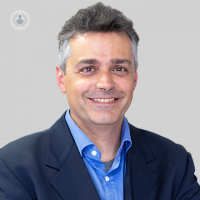Heart conditions in children: what you should know
Autore:In our latest article, esteemed London-based paediatric cardiologist, Dr Alessandro Giardini, outlines the most common heart conditions commonly found in children, whilst also revealing whether or not some of these conditions may be hereditary.

What are the most common heart conditions you treat in children?
Heart conditions or heart abnormalities are typically observed in one in 100 newborns, so it is extremely common for newly born babies to have a heart condition. Fortunately, though, the majority of these conditions only require monitoring, and don’t require any intervention.
The most common conditions that we see in babies at birth is a hole in the heart, and also some narrow structures in the baby’s heart. In some cases, these conditions can self-correct. When they, for whatever reason, do not self-correct, we intervene. This intervention depends on the severity of the problem as well as the condition of the child.
In terms of heart conditions in children, what are the main risk factors?
There is a higher incidence of cardiac defects in children born out of IVF, which is something that a lot of families don’t know. There is also a higher incidence in people that have lower acid levels, people who consume a high amount of alcohol, and who have diabetes. In these cases, there is a higher incidence in these parents’ babies having heart defects.
How common is arrhythmia in children?
It is very common. The most common form of arrhythmia in children is SVT, which is seen in newborns. Some children will require treatment for this, which usually involves medication. Very often, this can improve over time. If the arrythmia continues as the child gets older, we can perform small procedures to cure it.
Are some heart conditions that children suffer from hereditary?
There are quite a few conditions that can be hereditary. One of them is the paclitaxel aortic valve, which is probably the most common hereditary heart-related condition in children that we see.
This condition basically means that the child’s aortic valve is formed in a different way, and is made out of two flaps joined up together, instead of the normal three. This can lead to problems with the function of the valve.
Then, there are also hereditary problems related to the heart muscle, particularly hypertrophic cardiomyopathy, which weakens the heart muscle, and the heart can be prone to rhythm problems.
There are then hereditary problems related to the aorta itself, such as Marfan syndrome. There also a group of electrical problems of the heart, where the child can inherit a gene, which can expose the child to a sometimes severe rhythm-related heart disorder.
Dr Alessandro Giardini is a highly experienced and skilled paediatric cardiologist. If you are worried about a heart condition that your child may be suffering from, don’t hesitate to book a consultation with Dr Giardini today via his Top Doctors profile.


